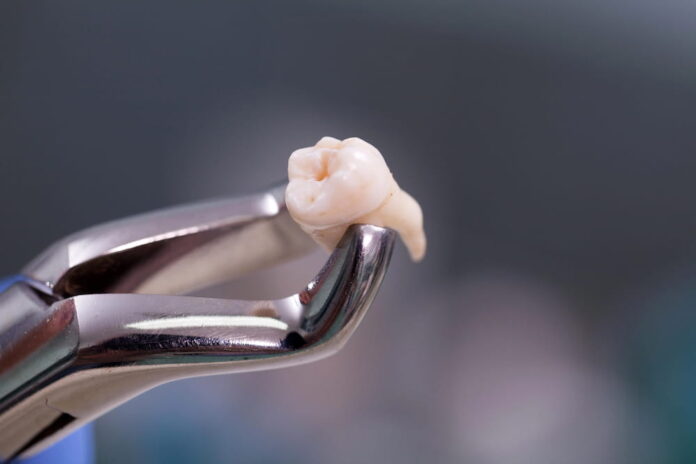Undergoing wisdom teeth extraction can be daunting, but understanding what to expect can ease anxiety and ensure a smooth experience. This article provides insights into the importance of removing wisdom teeth, the procedure, and the recovery process, offering peace of mind as you or your loved ones prepare for dental surgery.
Why Remove Wisdom Teeth?
Wisdom teeth, also known as third molars, are the last set of teeth to develop in humans, typically emerging between the ages of 17 and 25. For many, they pose no problem; however, not everyone is so fortunate. Here are reasons why wisdom teeth require removal:
– Impaction: Teeth may grow at odd angles, becoming trapped in the gum or jawbone.
– Overcrowding: Emerging wisdom teeth may push against existing teeth, causing alignment issues.
– Decay and Infection: Located at the back of the mouth, they are hard to clean, increasing the chance of cavities and infections.
– Pain and Swelling: Problems with wisdom teeth can cause discomfort, which worsens over time.
Removing impacted or problematic wisdom teeth prevents dental issues and maintains oral health.
Preparing for Extraction
Preparation begins with a consultation with your dentist or oral surgeon. During this visit, an X-ray will be performed to examine the position of your wisdom teeth and determine the best removal strategy. Follow these steps to prepare for your procedure:
1- Medical History: Share any medical conditions, medications, or allergies with your surgeon.
2- Ask Questions: Understand the steps involved and clarify any concerns or fears.
3- Arrange Transportation: You’ll need a responsible adult to drive you home after surgery, as anesthesia may impair your ability to drive.
4- Stock Up on Essentials: Purchase soft foods and drinks, gauze pads, and any prescribed medications beforehand.
The Extraction Process
Wisdom teeth extractions vary depending on the complexity of the case. Here is a general outline of what to expect:
1- Anesthesia: Depending on the number of extractions and individual needs, options include local anesthesia, sedation, or general anesthesia.
2- Incision and Extraction: An incision in the gum tissue reveals the tooth and bone. Your surgeon may divide the tooth into smaller sections if it’s easier to remove in pieces.
3- Closure: Stitches close the incision, promoting healing.
4- Gauze Placement: Gauze helps control bleeding in the extraction site.
The procedure generally lasts 45 minutes to an hour, although it may vary depending on specific factors.
Recovery and Aftercare
Post-surgery healing is crucial for comfort and preventing complications. Here are some tips for a smooth recovery:
– Manage Pain: Take prescribed medication promptly, and use over-the-counter pain relievers as instructed.
– Control Swelling: Intermittently apply ice packs to the cheeks during the first 24-48 hours.
– Rest: Allow your body to recover by abstaining from physical activities for a few days.
– Dietary Adjustments: Consume soft foods like yogurt, mashed potatoes, and soup. Avoid hard, crunchy, or sticky foods that may irritate the extraction sites.
– Hydration: Drink plenty of fluids, but avoid using straws, as suction may dislodge blood clots.
Oral Hygiene: Brush teeth carefully, avoiding the extraction area, and rinse gently with salt water.
Recovery is generally rapid, with initial healing around a week and complete recovery within a few weeks to a month.
Possible Complications
Though rare, complications can occur after wisdom teeth removal:
– Dry Socket: Occurs when the blood clot at the site dislodges, causing pain and required dentist intervention.
– Infection: Symptoms include fever, persistent pain, or pus; seek prompt medical attention if these occur.
– Nerve Injury: Uncommon and mainly temporary, affecting sensation in the lower lip, tongue, or chin.
Alert your dentist if you experience unusual symptoms during recovery.
The Emotional Side of Surgery
Emotions like fear and anxiety can overshadow the necessity of wisdom teeth extraction. However, acknowledging these feelings and discussing concerns with your dentist can empower you to face the procedure confidently. Understanding that this surgery is a commonplace milestone in oral health encourages a more positive outlook.
Your Journey to Oral Health
Having wisdom teeth removed is a crucial step in preserving long-term dental health. By opting for wisdom teeth removal Las Vegas NV, individuals can minimize potential oral health problems, leading to continued well-being. Proper preparation, understanding the process, and adhering to recovery requirements contribute to a successful dental experience.
Did you find this helpful? Check out our other helpful articles on our website.
Read Also
- Exploring the Benefits of Infusion Therapy in OKC: The Ultimate GuideUnderstanding Infusion Therapy: A Deep Dive into Its Purpose and Process What exactly is Infusion Therapy? Infusion therapy is an advanced medical treatment that delivers medication and nutrients directly into the bloodstream through a vein, typically via an IV (intravenous) line. This method is particularly beneficial for patients who require a concentrated dose of medication,… Read more: Exploring the Benefits of Infusion Therapy in OKC: The Ultimate Guide
- Ketamine-Assisted Therapies: Impacts on Employee WellbeingWorkplace stress is common today. Many employees feel tired, anxious, or burned out. Regular therapy can help, but some people need more support. Ketamine-assisted therapy is showing good results for mental health. A ketamine-assisted therapist guides each session safely. This therapy can improve mood, focus, and energy. Learning more about it can help teams stay… Read more: Ketamine-Assisted Therapies: Impacts on Employee Wellbeing
- The Future of Men’s Health: Why Telehealth Is Here to StayTelehealth isn’t just a pandemic trend that faded into the background. For Australian men, it has become one of the most practical, time-saving, and stress-free ways to manage everyday health — and it’s shaping the future of how we access care. Platforms like DOCTO, an Australian online doctor and specialist telehealth service, are leading the… Read more: The Future of Men’s Health: Why Telehealth Is Here to Stay
- How to Build a Simple, Clean Skincare Routine ?You don’t need a complicated skincare routine. It doesn’t have to be something that requires twenty different products and confusing steps. Your routine works well with just a few high-quality clean ingredients. The beauty industry keeps pushing more products, but your skin actually needs less. You only need a simple approach to get better results… Read more: How to Build a Simple, Clean Skincare Routine ?
- How Preventive Dental Care Supports Overall HealthHave you ever wondered how a simple dental checkup could impact your entire body? Oral health is more than just a bright smile. Studies show that poor dental habits can contribute to serious health problems. Gum disease and tooth decay are linked to heart disease, diabetes, and infections. Yet, many people overlook preventive dental care.… Read more: How Preventive Dental Care Supports Overall Health
- Seeing Clearly in a High-Tech World: A Deep Dive into Advanced Vision Care ServicesProtecting your eyesight isn’t optional—it’s essential. Modern eye care has evolved far beyond basic exams, offering advanced diagnostics, personalized treatments, and surgical innovations that keep vision sharp for life. A leading example is Intermountain Eye Center, home to specialists like Dr Fishburn Boise, where patients receive comprehensive, high-level vision care designed to preserve long-term eye… Read more: Seeing Clearly in a High-Tech World: A Deep Dive into Advanced Vision Care Services
- Why the Keto Diet Works for Some People—and Fails Dramatically for Others: An Ayurvedic Breakdown for Modern HealthcareThe keto diet has dominated weight-loss culture for years. For some people, it produces rapid fat loss, stable energy, and improved mental clarity. For others—especially those who gain weight easily—it leads to burnout, digestive distress, rebound weight gain, high cholesterol, and a metabolism that feels slower than before. Healthcare often frames this as a discipline… Read more: Why the Keto Diet Works for Some People—and Fails Dramatically for Others: An Ayurvedic Breakdown for Modern Healthcare
- How to Choose the Best Assisted Living Facility for SeniorsAre you looking for the right assisted living facility for a senior loved one? Choosing a place can feel overwhelming. There are many factors to consider, from care services to the environment. Safety, comfort, and social opportunities play important roles in daily life. Each senior has unique needs and preferences that must be met. Understanding… Read more: How to Choose the Best Assisted Living Facility for Seniors









